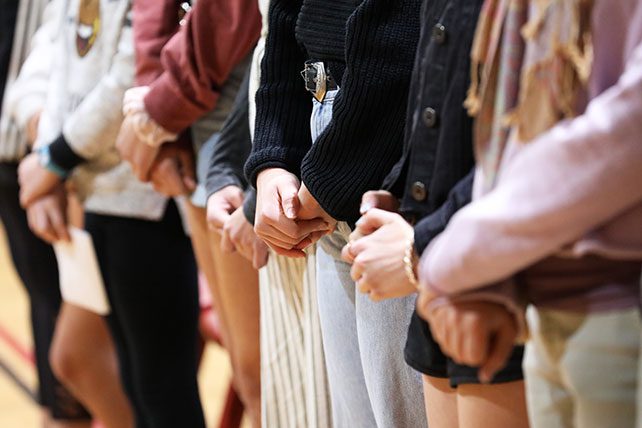The Day of Silence, now rebranded as the Day of (No) Silence, addresses LGBTQ discrimination. It occurs every year on the second Friday of April. Learn more about this event and how Christian teens and youth leaders should respond.
“Please understand my reasons for not speaking today. I am participating in the Day of Silence (DOS), a national youth movement bringing attention to the silence faced by lesbian, gay, bisexual and transgender people and their allies. My deliberate silence echoes that silence, which is caused by anti-LGBT bullying, name-calling and harassment. I believe that ending the silence is the first step toward building awareness and making a commitment to address these injustices. Think about the voices you are not hearing today. What are you going to do to end the Silence?” —From a previous Day of Silence campaign
For years, that was the purpose of the Day of Silence, which launched in the 1990s. Now GLSEN — the Gay, Lesbian & Straight Education Network — marks it as the Day of (No) Silence. The organization encourages members of the LGBTQ community and their allies to take action against discrimination and harassment.
Day of Silence: What’s a Christian To Do?
Does God call us to do anything to end that silence? By “we,” I mean us who place our trust in Jesus Christ as our only hope of salvation. Call us “Christians,” or “Christ followers.” Because of those titles and commitments, does God call us to act? Or can we just bury our heads in the sand and wait for the Day of Silence to pass?
Well, head-burying is rarely an effective faith-sharing strategy. So Christians must drop the labels. First, we need to see all people as our neighbors, regardless of whether they’re living outside God’s blueprint for sexuality.
In Luke 10:25-37, Jesus tells the amazing parable of the Good Samaritan. A priest and a religious guy leave a severely bullied and beaten human to perish. They don’t want to “get involved” — maybe because it might look like they’re somehow endorsing a lifestyle — right? Then a Samaritan (a target of racism back then) risks his own reputation, money, and even life to help a total stranger.
But this “stranger” was no outsider. According to Jesus, there are no strangers, only neighbors. And the second greatest commandment for Christ-followers is to “love our neighbor as ourselves” (Mark 12:31).
A second thing we must do in response to the Day of Silence is seek out biblical teaching on the topic. Teens should do this with their parents, youth leader, or pastor.

